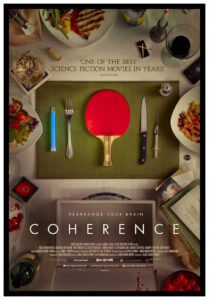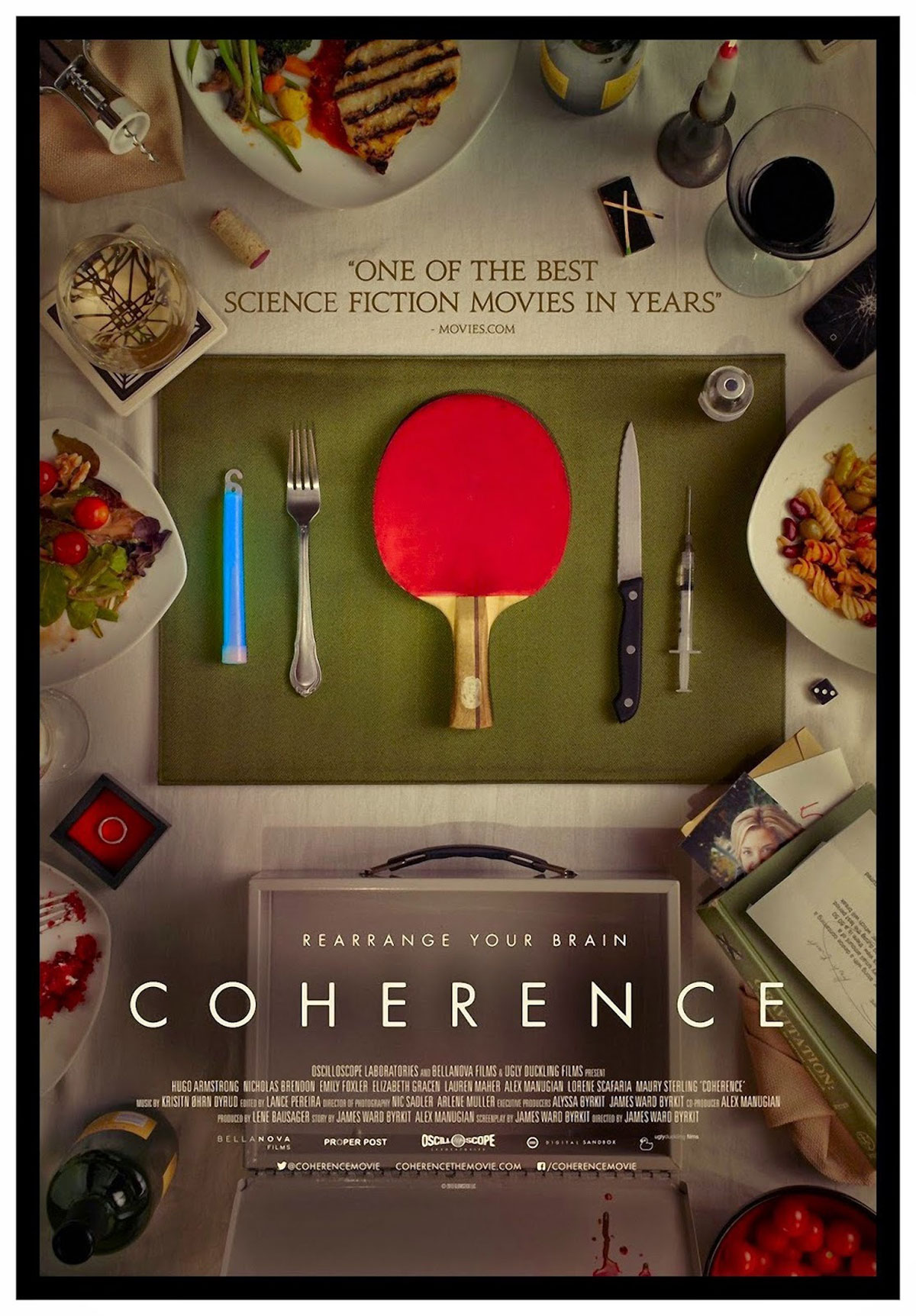
Director: James Ward Byrkit
Release Year: 2013
Runtime: 1h 29min
This is one of those films where a couple buddies sat down with a spiral notebook and a goal to write a sci-fi puzzle. One that probably made sense in their dorm room or one-bedroom in Santa Monica, but comes across as exactly this type of excercise in its filmed form. Because, frankly, Coherence is… incoherent. But the question is: does that matter? Does its lack of scientific rigor and loose-feeling scripting make for bad movie? It does not. In fact, this feels a bit like the quantum physics version of Kicking and Screaming. Though I enjoyed this film quite a bit more than that dour Gen-X weirdo fest. At least this thing had some tension and a plot.
Now, make no mistake, Coherence is a low-budget affair. In fact, I’m not even sure the writer could afford a laptop or a printer to print a few scripts for the small cast. Because this thing felt real ad-libbed. Not the main plot points — those would be too complicated to make up on the spot — but the dialogue did feel a bit like your buddy’s improv class “yes, and” excercise. Not in an unpleasant way, but in an organic and sometimes a little halting type way. And it’s obvious based on the filming, as well as the plotting, that the film’s director really only had one location in his location scouting report. Because he clearly had twelve dollars in his budget. Which I suppose makes for an interesting challenge. That he answers using the old dinner party trope. A tried and true plot device employed by indie film writers and directors since the beginning of low-budget cinema. An excuse to get a group of people together in one space, plied with wine and lots of conversation.
The conversation in this particular instance turns to relationships and eventually the passing Miller’s Comet. When suddenly a power outage interrupts the festivities. Which somehow leads to everyone knowing and understanding quantum decoherence. Which they literally look up in a book that for some reason one of the characters happens to have in his car. Because his brother is a physicist? This is where the whole incoherent part comes in. I mean, yes, what happens is fun and interesting — the immediate neighborhood seems to have split into several realities through which our characters pass when exiting the house and entering a dark spot in the street — but for any and apparently all of them to be able to explain the theory of why this is happening is ludicrous. And for them to almost immediately come up with a pretty convoluted and intricate way to tell who is the “real” version of each person versus a doppelgänger from the other side of the dark spot is pretty miraculous. A plan that involves Polaroids, dice and a ping pong paddle. That said, the twists and surprises is how this comet and its effect has made a mess of their reality. Several versions of each dinner guest running around the ‘hood, coming into the original house, leaving the original house. People punching themselves — or alt-universe versions of themselves. Quantum Swiss cheese.
In fact the action and chaos works itself to such a crescendo that you kind of forget that this is all pretty darned silly. You’re too busy speculating if so-and-so is the original so-and-so or like the second or third doppelgänger or so-and-so. Who may or may not know he’s the doppelgänger. Because there are no good guys or bad guys in this wacky, mixed-up world. There are some drunks. And some jerks. And some out-and-out narcissists. But Hugo from the universe we were first introduced to is not better than his fourth doppelgänger from across the street. They’re all scared and lost and confused, but wanting to protect their own reality. Except for one person, of course. The one person who just isn’t so into their reality and perhaps could take advantage of the situation and escape to another one where their life might be better. Which gives us our predictable, but reasonably satisfying Hitchcock / M. Night ending. Which I guess is pretty high praise for a film that was funded by some dude’s paper route.


